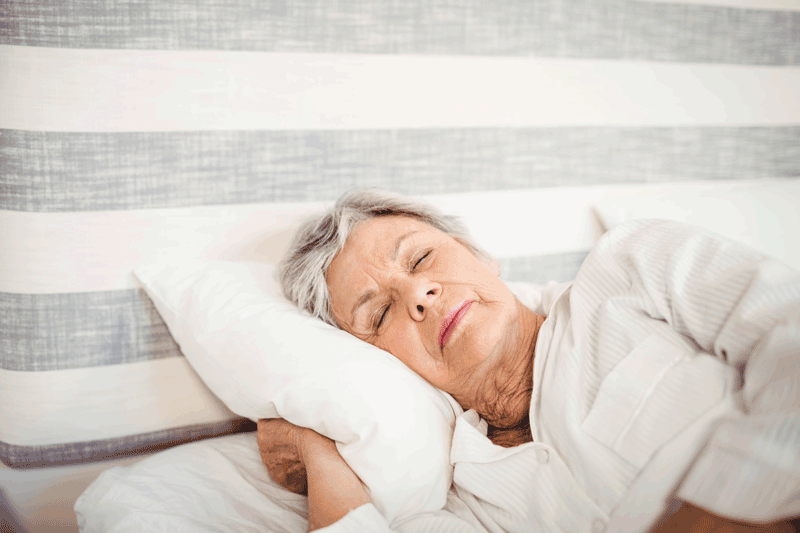Sleeping is one of the most basic needs of the human body and also plays a very important part in ensuring our physical and mental health throughout our lifetime. When you are sleeping, your brain is preparing for when you wake up during the day, it is working to make sure your brain and body function well and you remain healthy when you’re awake. This is why sleep deprivation can have serious consequences such as the inability to be productive, passing out of exhaustion and possibly getting injured, physical problems, mental health problems like hallucinations or mania or depression, and in extreme cases; death by exhaustion or suicide. Basically, your ability to perform well both physically and mentally depends on whether or not you’re getting enough sleep regularly according to your “body clock”; which typically follows a 24-hour repeating rhythm. This rhythm, more specifically, this “circadian rhythm” affects every cell, tissue, and organ in your body and also their function.

Daytime naps, although may seem healthy since they make you alert and refreshed, are actually harmful for your natural sleep-wake pattern since they may result in you not getting enough sleep at night and they also don’t provide any of the benefits a whole night’s sleep does and also disturb your body clock and body function. In order to ensure you sleep peacefully and get the right amount of shut-eye, your body requires, here is a compilation of six easy steps which you can follow to improve the quality of your sleep at night.
- Early to bed and early to rise, makes a man; healthy, wealthy, and wise. We’ve always heard that it’s important to sleep early at night and wake up early in the morning. The reason this is considered so important is that we may develop a regular sleeping schedule of going-to-bed time and waking-up time, which we can fit in our school or office life and follow it even on weekends. A regulated body clock helps you fall asleep and stay asleep and eliminates the risk of any sleeping disorders.
- Having a good and peaceful environment is important for a deep and healthy sleep. Make sure your room is a space where you can relax easily. Use a comfortable mattress which isn’t too hard or too soft and is good for your posture. Make sure your pillows are comfortable for your neck and don’t cause any cramping. Reduce light and noise from your bedroom when you have to sleep and adjust your room’s temperature according to your needs.
- Exercising regularly has a ton of benefits, one of which is healthy sleeping patterns. If you can’t fit gym or vigorous exercise into your schedule, even light exercise gets the job done better than not doing any exercise at all. Exercise is ideal when you wake up, although there is no restriction against exercising at other times of the day. Avoid exercising before bed as your body needs to relax and wind down for you to be able to sleep and also make sure you never sacrifice your sleep for exercise.
- As already mentioned above, your body needs to wind down and you need to relax before sleeping. This can be achieved by practicing a relaxing bedtime ritual, like listening to calming and sleep-inducing music or reading. One of the most popular ways to sleep better is taking a relaxing bath or shower. According to various studies, it helps improve amount and quality of sleep at night. If you don’t feel like taking a full bath before sleeping, just bathing your feet in hot water may improve sleep.
- Decrease your caffeine and food-intake late in the evening. Consuming large meals before going to bed can cause problems such as hormone disruption which may result in poor or less sleep. However, high-carb meals throughout the day or a few hours before bed are thought to increase the chance of a deep and healthy sleep. Caffeine has a lot of benefits, but the nervous stimulation caused by it disables the body’s natural ability to relax and this proves as a hindrance when you’re trying to sleep at night because you can’t expect to fall asleep if your body can’t even bring itself to relax.
- One of the easiest ways to relax and fall asleep is breathing exercises. Breathing exercises are most commonly used to relax the body, reduce physical tension and mental stress, and in turn improve sleep quantity and quality. There is a wide variety of breathing exercises for sleep such as the 4-7-8 exercise which is considered a life hack for triggering sleep, or the rhythmic circular breathing technique which is considered a blessing for those who find it difficult to shut down their mind at night. You can use these exercises either to relax and fall asleep at night or to fall asleep again if you wake up disoriented in the middle of the night.
Author Bio:
This guest post was written by Hassan Khan Yousafzai, he is passionate about Digital marketing. Along with educational background in Software Engineering he is bridging gap between marketing and development department. At Techvando, he has been consulting brands all over Pakistan to gain online traffic and profitable leads.
